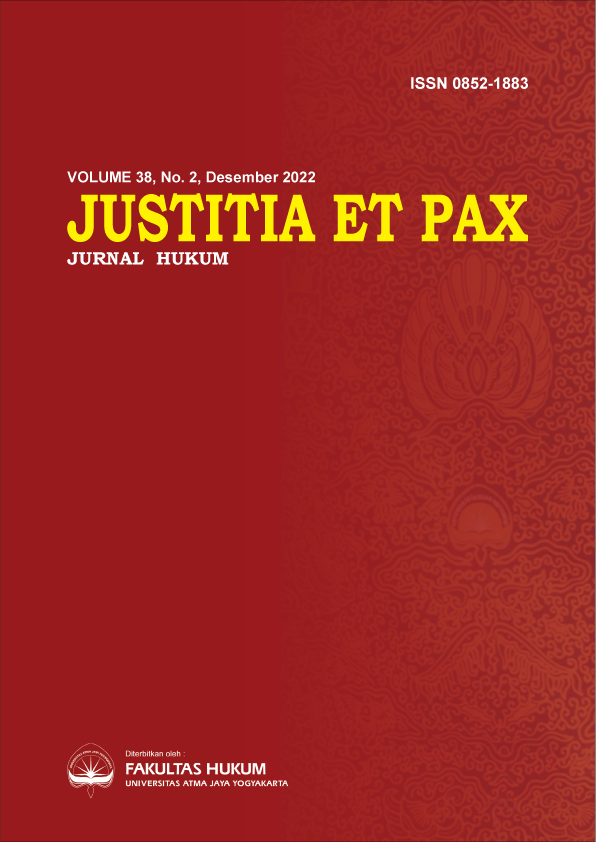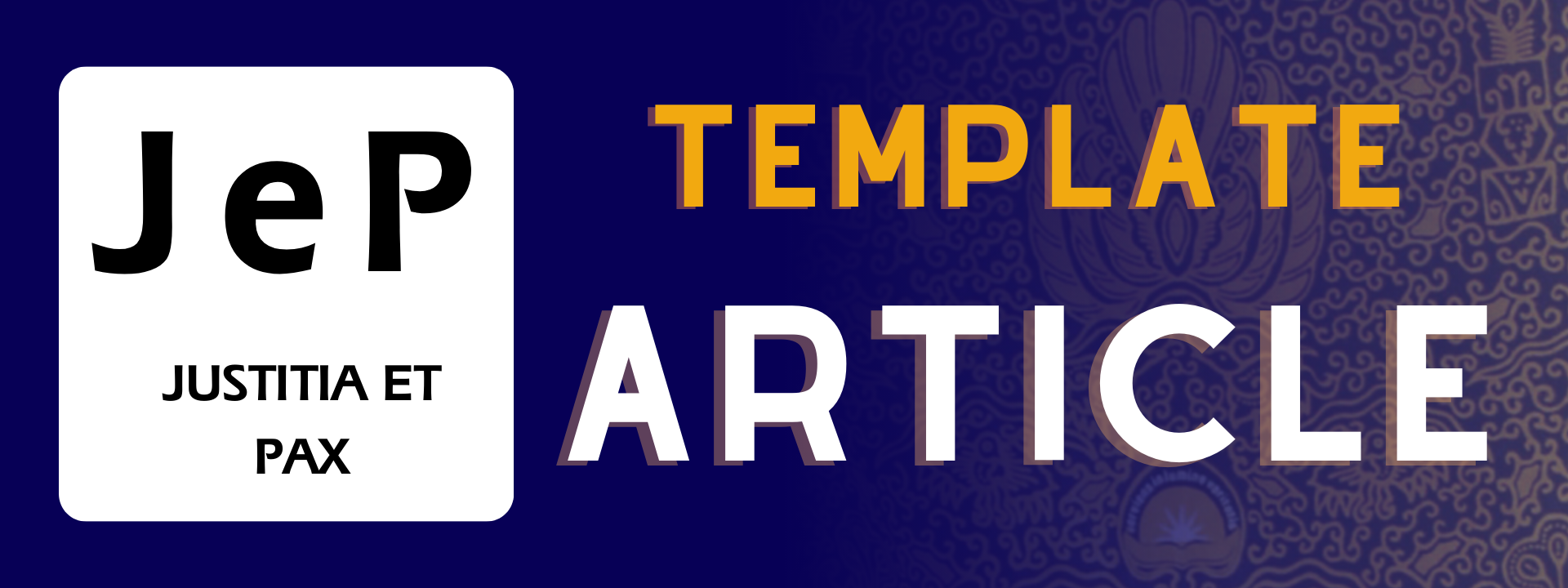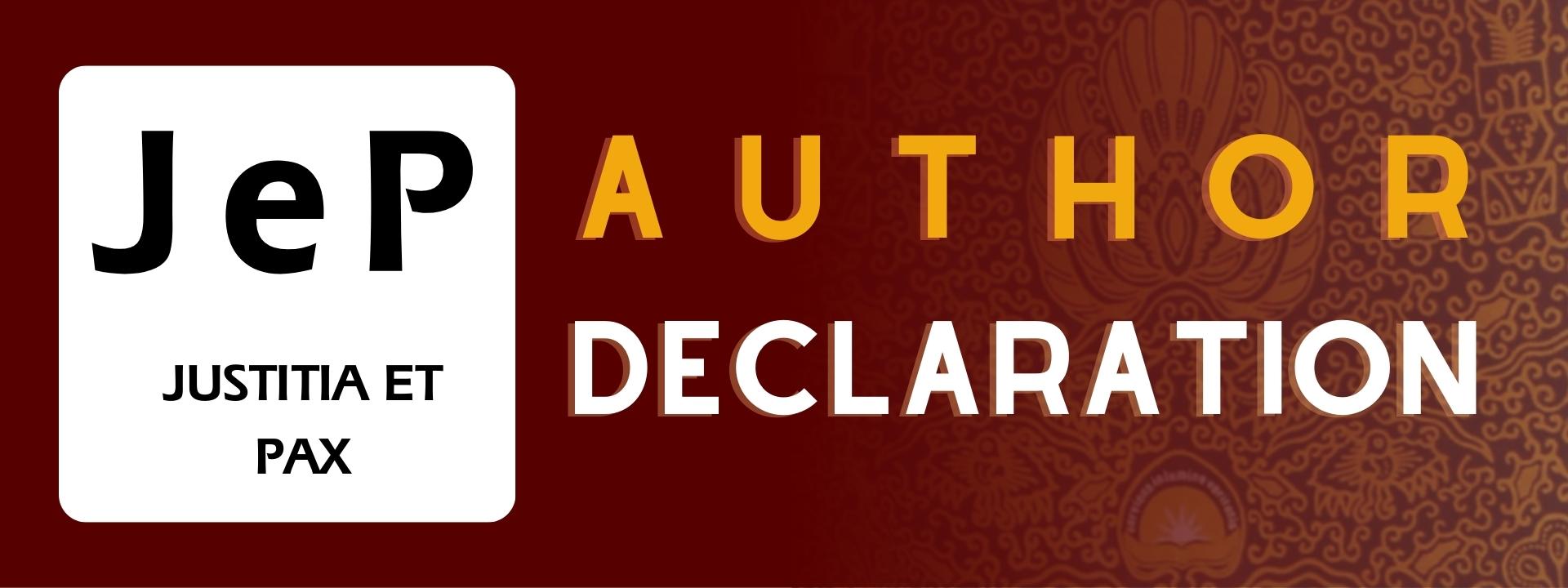APPRAISAL OF INTERNATIONAL CRIMINAL COURTS: LESSONS FOR THE GAMBIA ON JAMMEH’S ALLEGED CRIMES
DOI:
https://doi.org/10.24002/jep.v38i2.6305Keywords:
Genocide, Human Rights Violations, Hybrid Court, International Crimes, JusticeAbstract
This research is determined to present an appraisal of International Criminal Tribunal for Rwanda (hereinafter referred to as ICTR) from an international law perspective in their quest to serve justice after the perpetration of the heinous atrocities of genocide in 1994 in Rwanda and other criminal tribunals and courts. It examines the failure of the international community to intervene, the raison d’être of ICTR as the main tribunal in this research and its fate. It focuses on the national mechanisms and the need for The Gambia to achieve justice for victims of the former President, Yahya Jammeh by reflecting on Rwanda. These findings are used to gauge The Gambia’s Truth, Reconciliation and Reparations Commission’s (hereinafter referred to as the TRRC) recommendations and The Gambia’s white paper on Jammeh’s alleged crimes. It examines the violation of human rights, the prospects of this white paper and my perspective on possible mechanisms for social justice, integration and cohesion in The Gambia. This research, therefore, finds out that a hybrid court led by The Gambia and supported by judges in Africa is quite relevant to dealing with these alleged crimes because it is established with the aim of addressing this issue of Jammeh’s alleged human rights violations. This is so when The Gambia liaises with the African Union and the Economic Community of West African States to strengthen this hybrid court by providing this court with judges of outstanding legal acumen in hearing cases of such.
References
Books
Doherty, Teresa, 2020, “The Contribution of Women Judges and Prosecutors to the Development of International Criminal Law” In Identity and Diversity on the International Bench: Who is the Judge?, Oxford University Press, Cambridge.
Henderson, Conway W., 2010, Understanding International Law, Blackwell Publishing, Hoboken.
Laplante, Lisa J., 2013, “The Plural of Justice Aims of Reparations” In Transitional Justice Theories, Taylor and Francis, Abingdon-on-Thames.
Martin, Elizabeth A., 2001, Oxford Dictionary of Law, 5th edition, Oxford University Press, England.
Nabaneh, Satang, 2017, “The Gambia: Commentary” In Constitutions of the Countries of the World, Oxford University Press, Oxford.
Saine, Abdoulaye, 2019, “The ‘new Gambia’ and Ghana collaboration” In The Politics of Economic Reform in Ghana, Routledge, United Kingdom.
Journals
Breed, Ananda, “Resistant acts in post-genocide Rwanda”, Kritika Kultura, No. 21-22, 2013.
Eltringham, Nigel, “Illuminating the broader context”: Anthropological and historical knowledge at the International Criminal Tribunal for Rwanda”, Journal of the Royal Anthropological Institute, Vol. 19, No. 2, 2013.
Hauter, Jakob, “Delegated Interstate War: Introducing an Addition to Armed Conflict Typologies”, Journal of Strategic Security, Vol. 12, No. 4, 2019.
Hollie Nyseth Brehm, Christi Smith, and Evelyn Gerte, “Producing Expertise in a Transitional Justice Setting: Judges at Rwanda’s Gacaca Courts”, Law and Social Inquiry, Vol. 44, Issue 1, 2019.
Hamilton, et.al, Michael, "The Politicisation of Hybrid Courts: Observations from the Extraordinary Chambers in the Courts of Cambodia", International Criminal Law Review, Vol. 14, 2014.
Muhayisa, Assumpta, Dachet, Alexaandre, Mkarusanga, Ignatiana and Duret, Isabelle, “What is the fate of children born after the rape of their mother twenty years of the Rwanda genocide?”, Therapie Familiale, Vol. 37, Issue. 2, 2016.
Essa Njie and Abdoulaye Saine, “Gambia’s ‘Billion Year’ President; the end of the era and the ensuing of political impasse”, Journal of African Elections, Vol. 18, No. 2, 2019.
Theoneste Rutayisire and Annemiek Richters, “Everyday suffering outside prison walls: A legacy of community justice in post-genocide Rwanda”, Social Science & Medicind, Vol. 120, November 2014.
Sarjo, Musa “The Jammeh alleged atrocities: Prospects of prosecution by the International Criminal Court (ICC)”, Superlawgh, Vol. 1, No. 1, 2021.
Schulz, Philipp, “Justice seen is Justice done?’ -Assessing the Impact of Outreach Activities by the International Criminal Tribunal for Rwanda (ICTR)”, CIRR, Vol. 21, No. 74, 2015.
Top, Sibel, “Prosecuting political dissent: Discussing the relevance of the political offence exception in EU extradition law in light of the Catalan independence crisis”, New Journal of European Criminal Law, Vol. 12, No. 2, 2021.
Trouille, Helen "How Far Has the International Criminal Tribunal for Rwanda Really Come since Akayesu in the Prosecution and Investigation of Sexual Offences Committed against Women? An Analysis of Ndindiliyimana et al.", International Criminal Law Review, Vol. 13, No. 4, 2013.
Thesis
Panov, Stoyan Minkov, 2016, The Obligation Aut Dedere Aut Judicare (‘Extradite or Prosecute’), in International Law: Scope, Content, Sources and Applicability of the Obligation ‘Extradite or Prosecute, PhD thesis, University of Birmingham, Birmingham.
Paper
Blešić, Jovana, “Aut Dedere Aut Judicare in International and Domestic”, Paper, University of Priština, Kosovska Mitrovica, June 2022.
Magazines/Newspaper Articles
Cham, Pa Modou, “Faal demands Jammeh faces Justice as TRRC records 250 murders”, The Point, 31 May 2021.
Darboe, Mustapha K, “Banjul working towards a hybrid Gambia-ECOWAS Court”, Fondation Hirondelle, 23 June 2022.
Darboe, Mustapha K, “Key junta member Touray puts Gambia's Truth Commission to the test”, Fondation Hirondelle, 28 June 2019.
Jeng, Amat, “The Gambia election signals hope for democracy”, Al Jazeera, 11 December 2021.
Tamba, Aisha, “Essa Faal: Jammeh should be tried for crimes against humanity”, The Standard, 31 May 2021.
The Chronicle, “Veteran Nigerian lawyer asks ICC to Open investigation against Jammeh government”, The Chronicle, 1 August 2019.
Internet
Ministry of Justice (The Gambia), “Government White paper on the report of the Truth Reconciliation and Reparation Commission”, https://www.moj.gm/download-file/81d650ed-dc36-11ec-8f4f-025103a708b7, accessed on 10 August 2022.
Nabaneh, Satang, “Attempts at Constitutional Reform in The Gambia: Whither the Draft Constitution?”, https://www.researchgate.net/publication/344526477_Attempts_at_Constitutional_Reform_in_The_Gambia_Whither_the_Draft_Constitution, accessed on 27 October 2022.
Truth Reconciliation and Reparations Commission (The Gambia), “TRRC recommendations on institutional hearing: Justice Sector entities (Vol. 15), paragraph 5”, https://www.justiceinfo.net/wp-content/uploads/Volume-15-Institutional-Hearings-Justice-Sector-Entities.pdf, accessed on 10 August 2022.
Signatory States of the Rome Statute, “Rome Statute of the International Criminal Court”, https://treaties.un.org/pages/showDetails.aspx?objid=0800000280025774&clang=_en, accessed on 10 July 2022.
Law and Regulation
African Charter on Human and Peoples’ Rights.
Constitution of the Republic of The Gambia, 1997.
Convention on the Prevention and Punishment of the Crime of Genocide.
Geneva Convention for the amelioration of the condition of the wounded and sick in armed forces in the field of 12 August 1949.
Geneva Convention for the amelioration of the condition of wounded, sick and shipwrecked members of armed forces at sea of 12 August 1949.
Geneva Convention relative to the treatment of prisoners of war of 12 August 1949.
Geneva Convention relative to the protection of civilian persons in time of war of 12 August 1949.
International Convention on the Suppression and Punishment of the Crime of Apartheid (adopted 30 November 1973, entered into force 18 July 1976) 1015 UNTS 243.
International Covenant on Civil and Political Rights.
London Agreement of 8 August 1945.
Protocol Additional to the Geneva Conventions of 12 August 1949 and relating to the protection of victims of international armed conflicts (PROTOCOL I), of 8 June 1977.
Protocol Additional to the Geneva Conventions of 12 August 1949 and relating to the protection of victims of non-international armed conflicts (PROTOCOL II), of 8 June 1977.
Protocol Additional to the Geneva Conventions of 12 August 1949 and relating to the adoption of an additional distinctive emblem (PROTOCOL III), of 8 December 2005.
Resolution 827 (1993) and adopted by the United Nations Security Council at its 3217th meeting on 25 May 1993.
S.C. Res. 1820, intro. U.N. Doc. S/RES/1820 (2008) regarding Sexual Violence as a Weapon of War.
Resolution S.C. Res. 955, 1 U.N. Doc. S/RES (Nov. 8, 1994, regarding the establishment of the International Criminal Tribunal for Rwanda.
Rome Statute of the International Criminal Court, Art. 5, 17th July 1998, UNTS 3.
Statute of the International Criminal Tribunal for Rwanda.
United Nations Charter.
Court Decisions
High Court Decision No. HC/068/17/CR/012/AO regarding the crime of murder case between the State and Yankuba Badjie et al in The Gambia.
The High Court Decision No. HC/365/19/CR/067/AO regarding the charge of murder between the State and Yankuba Touray in The Gambia.
Supreme Court Decision No. SC CR/001/2020 regarding the issue of constitutional immunity between the State and Yankuba Touray in The Gambia.
Downloads
Published
Issue
Section
License

This work is licensed under a Creative Commons Attribution-NonCommercial-ShareAlike 4.0 International License.
Authors who publish with this journal agree to the following terms:
- Authors retain copyright and grant the journal right of first publication with the work simultaneously licensed under a Creative Commons Attribution License that allows others to share the work with an acknowledgement of the work's authorship and initial publication in this journal.
- Authors are able to enter into separate, additional contractual arrangements for the non-exclusive distribution of the journal's published version of the work (e.g., post it to an institutional repository or publish it in a book), with an acknowledgement of its initial publication in this journal.
- Authors are permitted and encouraged to post their work online (e.g., in institutional repositories or on their website) prior to and during the submission process, as it can lead to productive exchanges, as well as earlier and greater citation of published work (See The Effect of Open Access).

This work is licensed under a Creative Commons Attribution-NonCommercial-ShareAlike 4.0 International License.




















